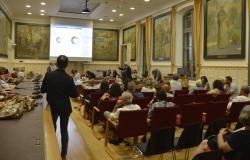On Sunday, Belgian citizens will be called to the polls for three different elections: those for Federal Parliamentthose for regional assemblies (Flanders, Wallonia and Brussels) and finally the European. This is a nomination that has taken on particular importance due to the possible intersections depending on the outcome of the vote and the prospect of being part of the general “shift to the right” in European politics. Indeed, polls give the far-right Flemish Interest (Vb) party as the favorite for the federal elections and those of Flanders, already growing strongly in 2019, when it won 18 seats out of the 150 in the chamber, and who could gain as many as 26 after Sunday’s count, according to some polls. The main losers would be the center-right and liberal parties, while the Labor Party, a left-wing force which distinguishes itself from the Socialists (PS) and Avanti (Vooruit), would also gain votes. Due to the particular form of the Belgian political scenario, it is very difficult for one party to obtain a very high percentage of preferences compared to others, forcing the different leaders to long negotiations to find an agreement on the future government (the record was reached after the 2010 elections, when it took 541 days to conclude negotiations). The fragmentation becomes even more complicated when looking at regional parliaments, with some parties, including the Vb, only running in Flanders.
In this perspective, we must also take into account the “sanitary cordon” historically established by the Belgian parties to isolate the extreme right, and which in the current elections could lead to a coalition difficult to compose so as not to allow Vb and the New Flemish Alliance (N-Goes) to sit in the government. The question of immigration and security has occupied a particular place in the public debate in recent months and could have significant weight particularly during the vote in Flanders, while in Brussels and Wallonia, voters seem more concerned about economic issues and the decline in purchasing power experienced in recent times. The different perception of citizens of the three regions that make up Belgium will obviously also have an impact on the negotiations for the future executive, with a series of crossed vetoes and internal alliances which could lead to the position of prime ministers from minor parties. , like the current head of government Alexandre De Croomember of the Flemish liberals Open Vld.
The data on electoral participation in Belgium, traditionally very high by European standards and close to 90 percent, should be less surprising: in the country, it is in fact obligatory to go to the polls, under penalty of economic sanctions; Citizens can, however, decide to leave the ballot blank: in addition, for this electoral round, young people aged 16 and 17 will also be allowed to vote, but only for the European Parliament. Polling stations throughout Belgium will be open on June 9 from 8:00 a.m. to 2:00 p.m., while for online voting it will be possible to express your preference until 4:00 p.m.
Also read other news on Nova News
Click here and receive updates on WhatsApp
Follow us on Nova News social networks on TwitterLinkedIn, Instagram, Telegram






